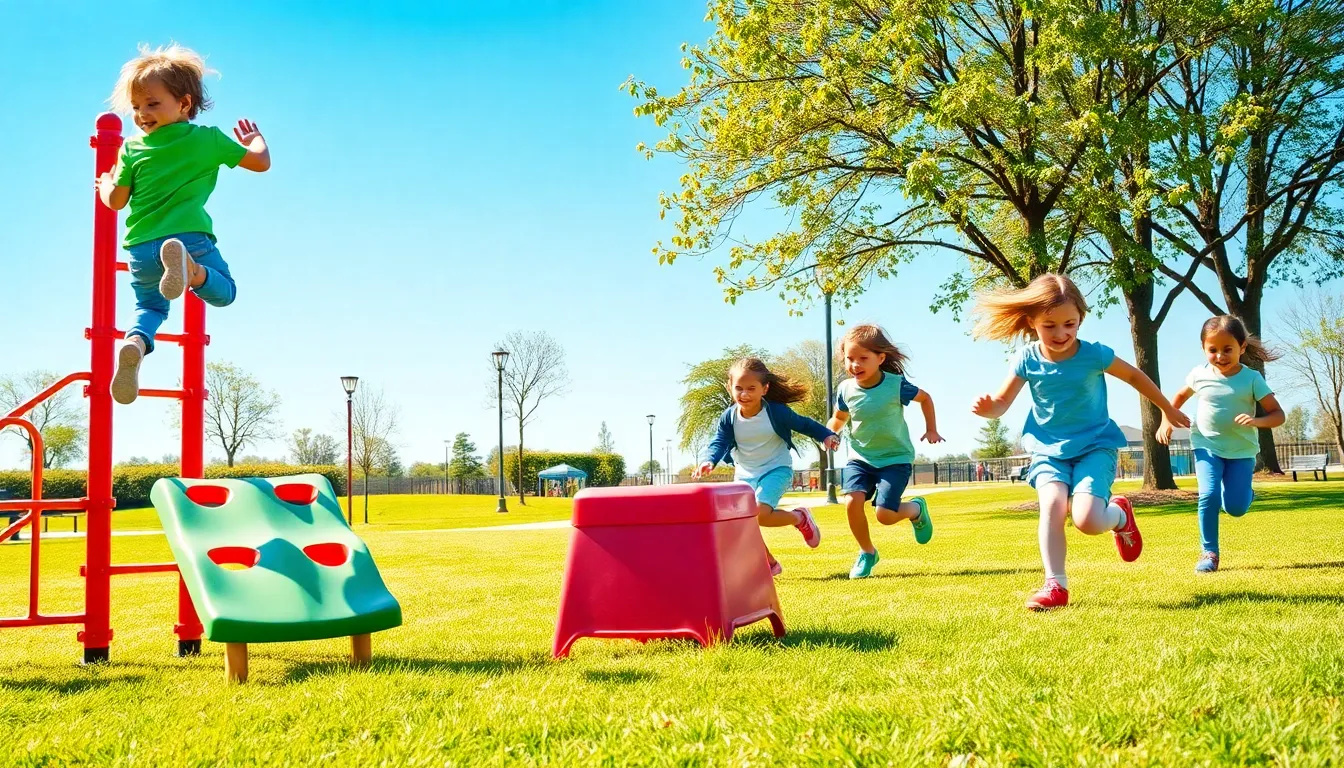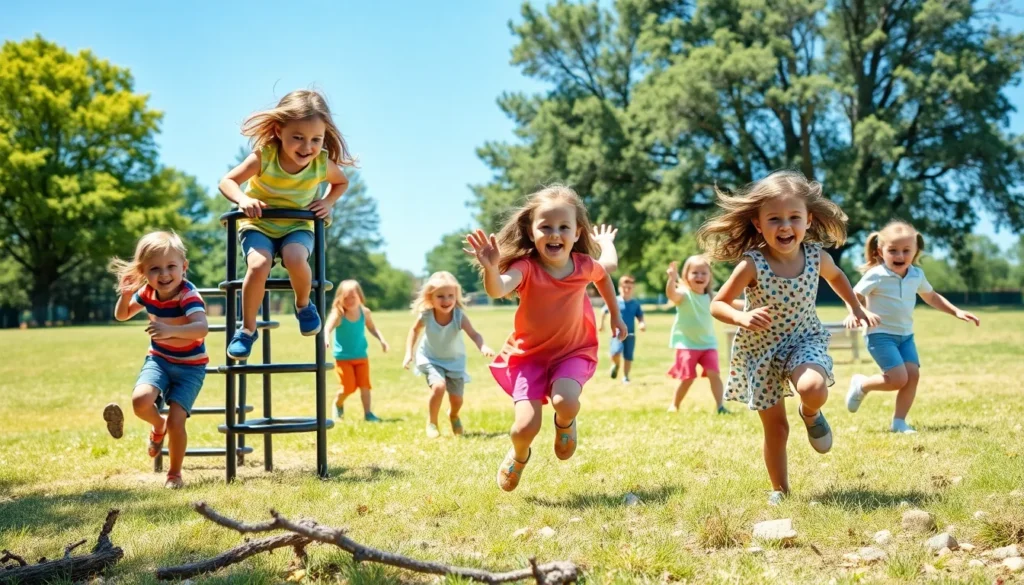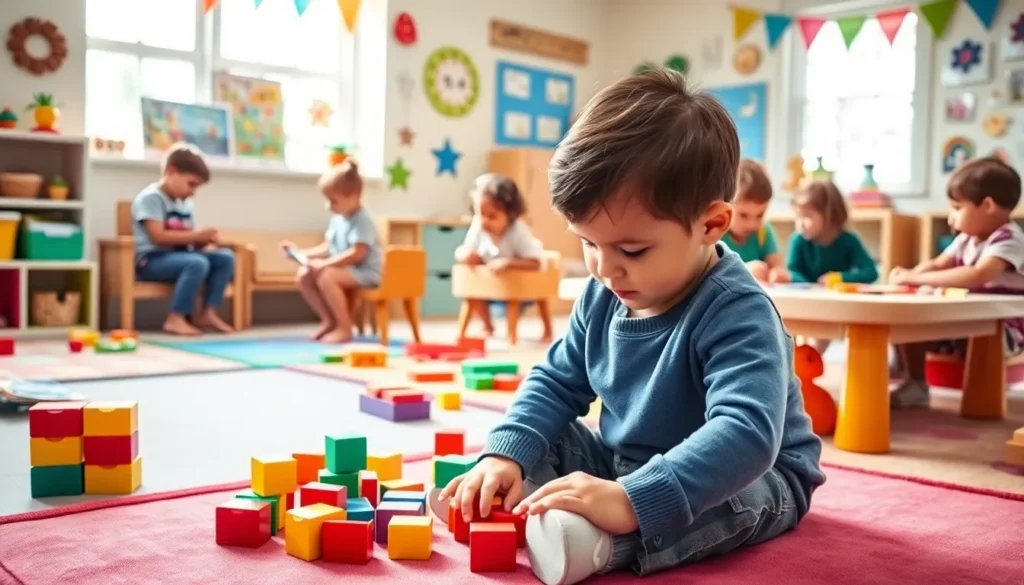Imagine a world where children explore, create, and thrive, all while enjoying the great outdoors. No, this isn’t a whimsical dream: it’s the reality of outdoor play in early childhood. Beyond just having fun, outdoor play lays the foundation for essential life skills. So grab your sunscreen and a sturdy pair of shoes: it’s time to investigate into the incredible benefits that outdoor play offers during those formative years.
Table of Contents
TogglePhysical Development

Outdoor play plays a pivotal role in physical development, forming the backbone of healthy growth in early childhood.
Improved Motor Skills
When children scamper up slides or balance on monkey bars, they’re not just having a blast, they’re honing their motor skills. Activities such as running, jumping, and climbing enhance coordination and balance, helping them develop the foundational skills necessary for sports and daily activities.
Strength and Endurance
Engaging in outdoor play naturally builds strength and endurance. The more active children are, the better their muscle tone and cardiovascular health become. Whether it’s galloping through a field or climbing a tree, children boost their physical capabilities while sending endorphins soaring.
Promoting Healthy Habits
Fostering healthy habits from a young age sets children on a path toward lifetime wellness.
Outdoor play encourages kids to engage in physical activity rather than turning to screen time. Enjoying fresh air and sunshine helps to combat obesity-related health issues. Also, it instills the importance of exercise as a fun part of daily routine, creating health-conscious adults down the road.
Cognitive Benefits
The benefits of outdoor play extend far beyond the physical: they also provide essential cognitive perks.
Enhanced Creativity and Imagination
Nature serves as the ultimate backdrop for imaginative play. When children interact with their surroundings, their creativity flourishes. They can transform sticks into swords, leaves into crowns, and rocks into treasure. Such creative engagement sharpens their thinking skills and encourages innovation.
Problem Solving and Critical Thinking
Outdoor play often involves unstructured scenarios that require children to solve problems head-on. Whether trying to build a fort or navigate a makeshift obstacle course, kids learn to evaluate situations, make decisions, and adapt, all of which are cornerstones of critical thinking.
Social and Emotional Growth
Social dynamics flourish in outdoor settings, making playtime crucial for emotional and social development.
Building Social Skills
Playing outside with peers nurtures teamwork and communication skills. Children share, negotiate, and take turns, all vital components of social interaction. By participating in group games and adventures, they learn to appreciate different perspectives and build lasting friendships.
Boosting Confidence and Resilience
Outdoor play also boosts self-confidence and resilience. Overcoming challenges, like reaching the top of a climbing wall or navigating a muddy path, helps children experience a sense of achievement. Learning to cope with failure, whether it’s not making it to the top on the first try or losing a game, builds grit and prepares them for life’s hurdles.
Connection to Nature
Finally, outdoor play strengthens a child’s connection to nature, igniting a lifelong appreciation for the planet.
Fostering Environmental Awareness
Children exposed to nature develop an inherent curiosity and respect for the environment. Experiencing the changing seasons, observing insects, and understanding ecosystems cultivates an awareness that may lead them to become future environmental stewards.
Encouraging Exploration and Curiosity
Nature invites exploration. Climbing a tree or examining a flower’s structure allows children to explore their curiosity. Such activities spark questions and lead to discoveries, ensuring that their desire to learn extends well beyond the classroom.




